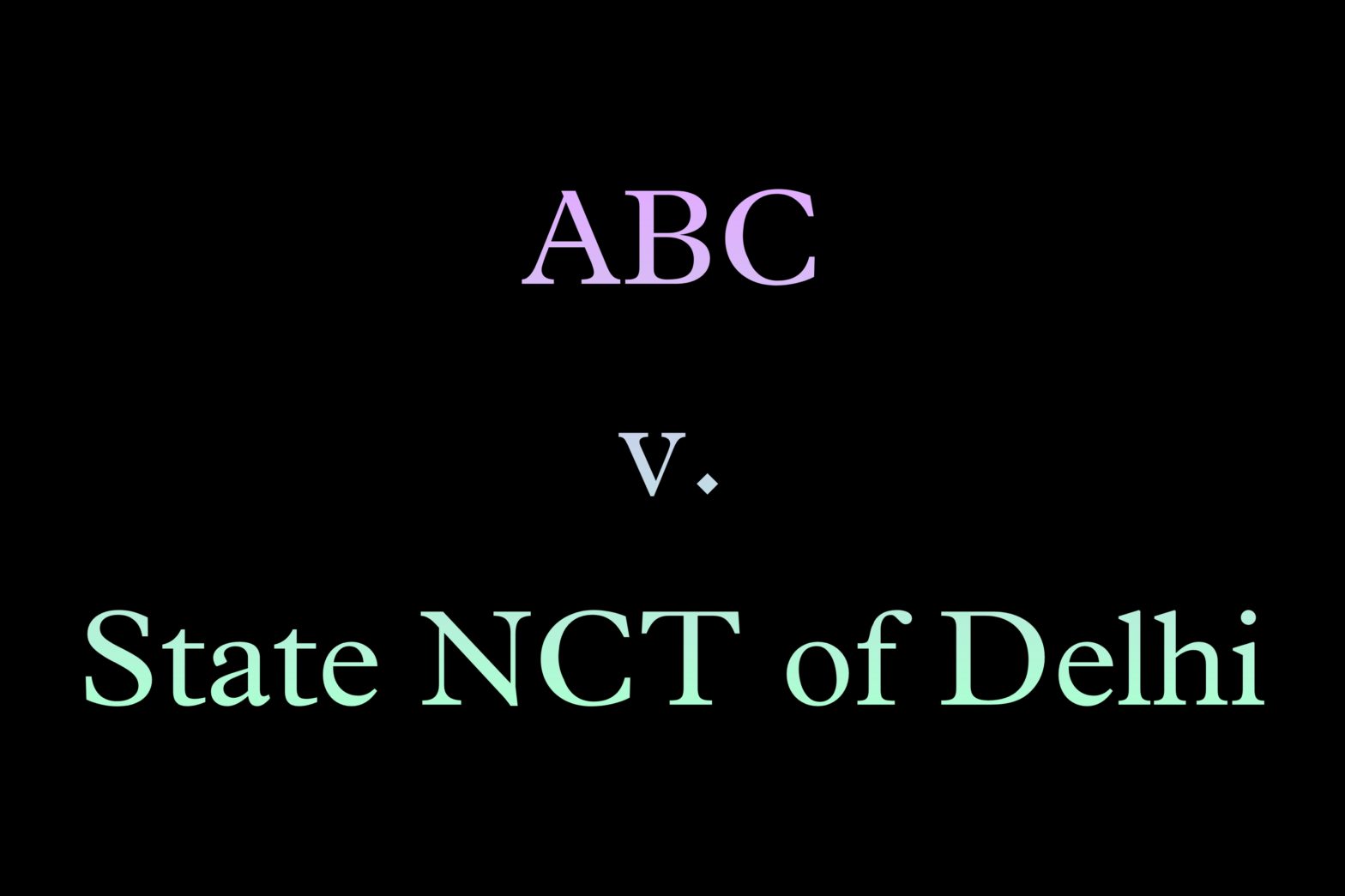Petitioner- Abc
Defendant- State NCT of Delhi
Citation- 2015 SCC OnLine SC 609
Decided- 6 July 2015
Bench- Vikramajit Sen, Abhay Manohar Sapre JJ
Facts
The Appellant was a well-educated and financially self-sufficient single Christian mother. Under Section 7 of the G&W Act, she had applied to be the sole guardian of her son. Before a guardian is appointed, a notification must be provided to the child’s parents under Section 11 of the G&W Act. The Appellant gave public notice of the petition for guardianship but refused to reveal the child’s father’s identity. The Appellant also submitted an affidavit stating that her guardianship rights might be canceled, altered, or amended at any moment if the child’s father objected to them. The guardian court, on the other hand, refused to accept her application until she provided the name and contact information of the child’s father. Her appeal was dismissed by the Delhi High Court, which ruled that guardianship could not be awarded without notifying and making the natural father a party to the case. She then filed an appeal with the Supreme Court.
Issue
Whether it was imperative for an unwed mother to specifically notify the putative father of the child of an application to become the legal guardian of the child.
Holding
The Supreme Court, in a progressive decision, has permitted an unmarried mother to file for guardianship of her child without having to submit a mandatory notice to the child’s father, who had no ties with the child after its birth. The father’s name may not be made public and is not required for acquiring the child’s birth certificate, passport, or for school purposes, according to the court.
Rationale
In delivering its ruling, the Supreme Court cited provisions of Hindu and Mohammedan guardianship laws in India, noting that in the instance of a child born to unwed parents, the mother was given preference in custody disputes. They went on to examine the laws of nations such as the United Kingdom, the United States, Ireland, New Zealand, and South America, finding a similar position that gives an unwed mother precedence for guardianship rights. Following a discussion of the most widely held legal viewpoints on the subject, the Court decided that guardianship and other relevant rights should be granted to the mother of an illegitimate child, with the child’s best interests in mind. They also looked into the Convention on the Rights of the Child to learn about the ideas of the child’s best interests.
Furthermore, the Court stated that the State’s position about Sections 11 and 19 ignored the importance of Section 7, which was the “quintessence” of the Guardians and Wards Act, 1890. Section 11 applied, according to the Court, when a third party sought guardianship of a child and the views of the child’s natural parents became relevant. In the case of an illegitimate child, however, the definition of ‘parent’ in Section 11 may be limited to the parent who was the sole caregiver. The Court went on to say that Section 11 was simply procedural and that it might be deviated from in the interests of a child’s welfare.
On the issue of privacy, the Court stated that forcing the mother to reveal the father’s name and contact information when she did not want him involved in her son’s life could be a violation of her fundamental right to privacy. The Court recognized that the father had shown no concern for his son since his birth, and that the Appellant had raised him independently, and that both parties’ decisions in this regard must be accepted, especially if they were in the best interests of the kid. As a result, the Court granted the appeal and ordered that the Appellant’s guardianship application be granted.
